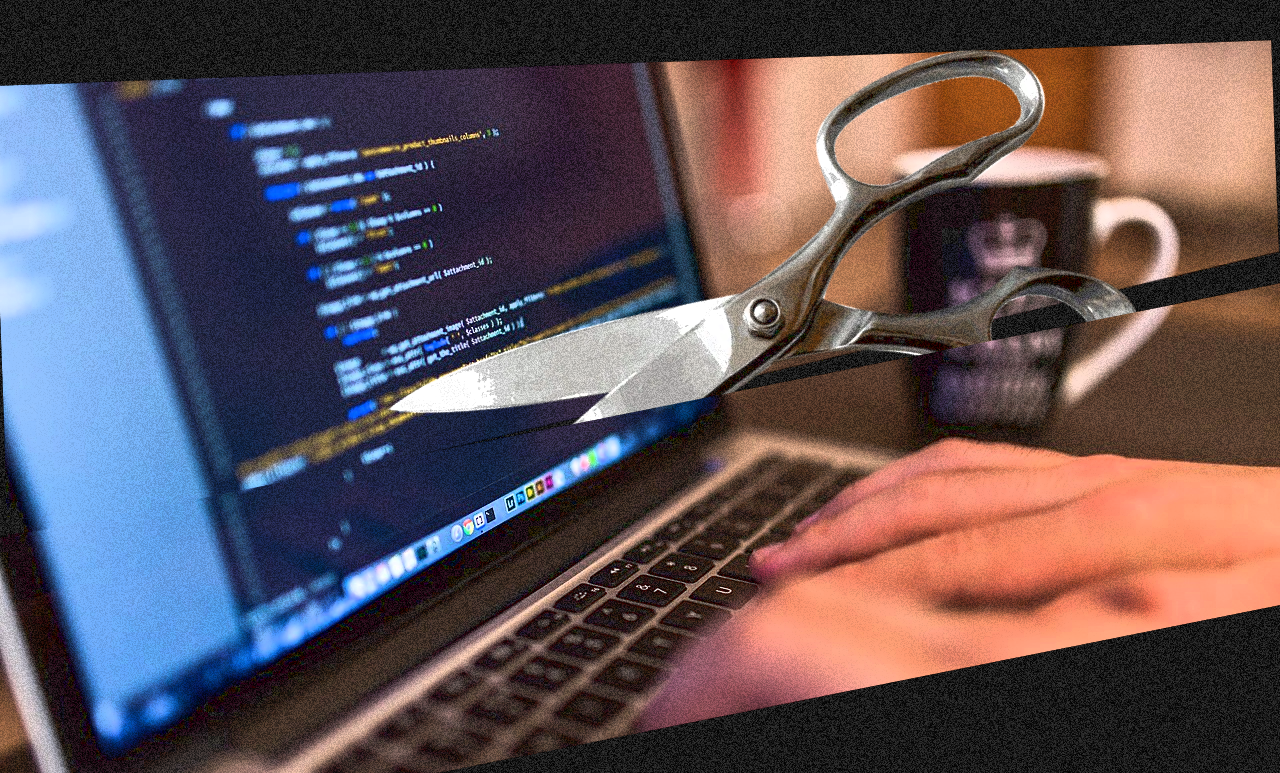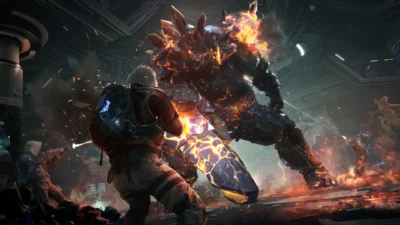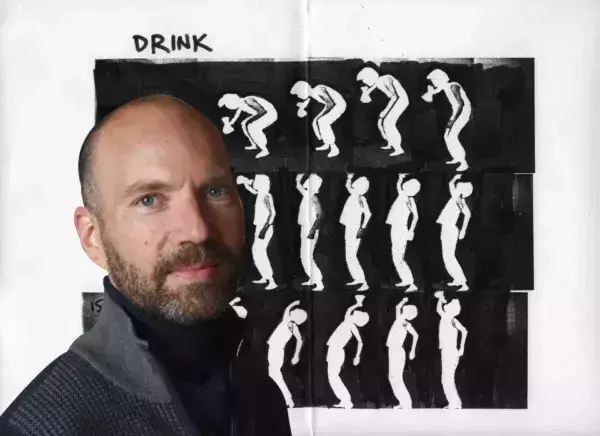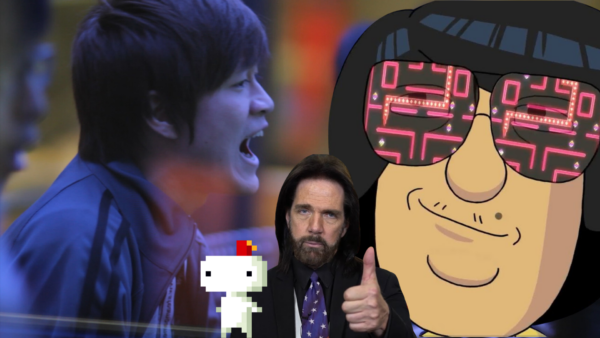
Companies are making cuts costs at the wrong end of the scale – and it’s our games that will suffer for it, Vikki Blake writes.
Epic Games. Team17. Naughty Dog. Crystal Dynamics. Volition. Roblox. BioWare. Creative Assembly. We know these studios because of the digital worlds they paint, the pretend people they fill the worlds with, and the stories or puzzles those people have to share with us. But as 2023 creaks towards the finishing line, now we know them for another reason: between them, and more – many more companies, sadly, including Twitch, Blizzard, BeamDog, Visual Concepts, Gearbox, Blackbird, CD Projekt Red, 343 Industries – they’ve collectively put about 6,000 people out of work since we last linked arms for Alud Lang’s Syne.
No, I don’t suppose many C-suite execs wake up in the morning, relishing the thought of throwing a hand grenade into the lives of the talented artists and programmers working for them, but it seems to happen so often these days – endlessly, habitually, ad nauseatingly; particularly as we hurtle towards those oh-so-important quarterly financial filings – that I’m not convinced that job cuts are necessarily the last resort they insist it is, either. Maybe I’m just jaded. Maybe I’m angry. Maybe I’m jaded and angry and bone-meltingly furious that our artists and musicians and writers and designers are treated like disposal commodities to throw away whenever there’s an investor call on the horizon.
Despite what the flowery statements will tell you, I don’t think this week’s cuts were inevitable. Yes, the industry boomed during COVID, but that’s because the people at the top wanted it to. The entire world was stuck at home, learning how to cut their own hair and teach their own kids and rediscovering – or discovering for the first time, even – their love of gaming. And there was no publisher in the land that didn’t want to capitalise on that.
But no industry can maintain that kind of growth long-term. That doesn’t necessarily mean it’s inevitable that thousands of jobs would be cut when the bubble burst, though. And yes, I know it’s always a personnel bill that tops out a firm’s overall expenditure. And I don’t pretend to know how hard senior management works because, guess what – like most of us, I’ve never climbed the pole that far. But I know they’re paid a lot. A disproportionate amount, even. Which begs the question: if the bulk of your salary bill is tied to the disproportionately expensive executives eating hundreds of thousands or millions of dollars a year, why is it the people at the opposite end of that scale – the people fighting just to get a living wage or a permanent contract in many cases – that get culled first?
Emilie Avera, IDG Consulting’s SVP of consulting, said it best in a bruising – but uncannily accurate – summary on GamesIndustry.biz today:
“As money started to dry out [post-pandemic], firms were forced to reassess the ways funds were allocated, with layoffs emerging as an immediate solution to cut expenses,” she explains. “The short-term vision of chasing aggressive growth, often at the expense of sustainable profitability, was exacerbated by investors — lured by the promise of rapid returns, many pursued hasty acquisitions, often without sufficient diligence paired with poor budget management. This frantic approach, driven partly by a ‘fear of missing out,’ had the unintended effect of bruising the industry they had aimed to prop up.”
Avera sees it. She even calls it out, highlighting the “glaring disparity” between cuts at the bottom of the food chain and cuts at the top, and what she describes as a galling “evident lack of comparable reduction in total compensation packages for executives”.
But it doesn’t matter if we see it, does it? It doesn’t seem to matter if we call it out, either. Activision Blizzard cut hundreds of jobs while simultaneously posting record profits. Embracer seemed to hoover up every company not nailed down over the last couple of years, only to announce a “restructuring program” months later that would apparently drive down overhead costs by 10 per cent, but have a “neutral impact” on projected earnings… which just seems to be a fancy way of saying: “we’re gonna make people do more with fewer resources and no extra money. lol”.
This industry – long-boasted to be worth more than movies and music combined – makes billions a year, and yet as developer Rami Ismail points out, most developers are lucky if they retain a position for just five years. The CEOs, on the other hand? Those at the apex of the pyramid? The average CEO tenure in the games industry is three times that… even though they and the others crammed into the boardroom are dominating that expensive wage bill. Because there is enough profit. There is enough money. It’s just spent in the wrong places.
As brand manager Rim so succinctly points out, “the math ain’t mathing”. Activision Blizzard’s infamous CEO Bobby Kotick, EA’s Andrew Wilson, and Team17’s Debbie Bestwick take home $154.6m, $34.7m, and $10.2m a year respectively. But sure, sure. Tell me again that it’s the QA team that needs slimming down, or that there’s no money to retain the community team that just worked 48 hours straight because your servers were borked. Yep. Cool, cool. Makes total sense, pal.
So. Yeah. I’m angry. Angry, tired, and raging that there’s nothing I can do about it beyond sitting here tonight, smashing my keyboard with my fists and complaining about it to you.
But here’s the thing. This is what you have to remember the next time that super hyped-up game is delayed. This is what you have to bear in mind when the next triple-A game you buy is unplayably buggy, or the servers have been down for five days straight. Because when game companies cut back on QA and programmers and marketeers and its people are hurt and scared and overworked, it’s your game that will suffer.
So don’t you dare let the people finalising those redundancy decisions – and putting out regretful statements – forget it.
Vikki Blake has a column every week here at whynow Gaming. You can read her previous dispatch here.





